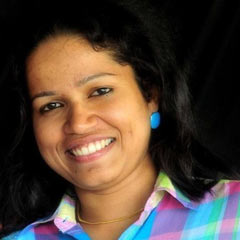Will sexual-crime victims be given short shrift with the renaming of shelter home?

Mail This Article
Kozhikode: The Kerala government had intended to remove the stigma faced by the inmates of Nirbhaya shelter homes by renaming them as Women and Children Home. However, the homes, which were set up by the Nirbhaya Cell of Social Justice Department for protection of sexual-crime victims, could lose their purported role under a new agency, fear officials and activists. The homes are about to vanish as the state is witnessing a record number of rapes on children.
It was on October 30 this year, special secretary Biju Prabhakar directed the name of shelter homes be changed as 'Women and Children Home'. In the letter, he explained that Women and Children department director had requested on the basis of the 15th Nirbhaya executive committee meeting that the shelter homes be rechristened as such. Currently, there are 13 Nirbhaya shelter homes spread across Kerala with more than 400 inmates.
Meanwhile, the Nirbhaya cell in Thiruvananthapuram is yet to make postings of account officer and two programme officers after the last ones left three months ago. Sources also reveal that the fund for the inmates have not been released after June. The delay in appointments and release of funds for the welfare of inmates also raises suspicion about the intent of the recent changes.
Activists and officials connected with the Social Justice Department doubt the motive of the renaming of Nirbhaya homes as an attempt to reduce the significance of these homes and run them through Child Welfare Committees (CWC), which are notorious for succumbing to political interference especially in POCSO cases. It has been found that many such cases are scuttled after the victims are forced to either turn hostile or withdraw plaint. A senior officer points out on condition of anonymity that such cases are more when the accused is a relative of the victim.
“The tendency is to hush up the crime when the immediate relatives are involved, be it a father or uncle. Then there is emotional blackmailing and they put a lot of pressure on the victim to withdraw the complaint or to turn hostile (change statement). The victims are housed in Nirbhaya shelter homes to avoid such influence by the family or those close to the accused,” said the official.
The following recent cases expose the challenges faced in the running of Nirbhaya homes.
Areekode case and odd review
The victim, a 10-year-old girl approached the Nirbhaya home in February, saying that she had been facing sexual advances from her sister's husband from the age of eight.
As soon as she was admitted to the shelter, her mother, sisters and their husbands frequently visited the home to meet her and persuade her to withdraw the case and leave the shelter. Once, when the girl went to write examination, the family kidnapped her and admitted her at a mental health hospital to claim that she is mentally challenged and her statements are not accountable.
A complaint was submitted by the Mahila Samakhya Society (MSS), which runs the shelter home to the district police chief, and she was brought back. Soon, the family approached the High Court even as the decision of the CWC was awaited. The family argued that one of the accused, the brothers-in-law's friend, has been arrested and hence the girl can be brought back home. The High Court will again consider the case on Monday (Dec 17).
In an unusual development, when the case was shifted to the second investigating team and was pending before the High Court, the chief minister, who also holds the Home portfolio, called an urgent meeting of the social justice minister (now women and child minister), Malappuram CWC chairperson, district child protection officer, Childline coordinator and MSS director to review this POCSO case at a meeting held in Thiruvananthapuram on November 28.
The meeting was called after a petition filed by the victim's parents against the decision of the home to prolong her stay there. So far there has been no precedent of higher authorities, including the chief minister, calling for a review when the case is already before the High Court. Rarely is the statement of a POCSO victim doubted.
Malappuram CWC chairperson Manikandan told Onmanorama that calling an urgent meeting cannot be viewed negatively and the chief minister may not be aware that the case is already pending before the High Court.
Idukki case
In November, a victim in a POCSO case from Idukki, had given her statement to police that she was forced to speak against the Nirbhaya shelter home by one of the members of the Kerala State Commission for the Protection of Child Rights (KeSCPCR). The forced statement was suspected to help the real accused in the case and to trap the officials of the home run by MSS.
The minor girl was admitted to a shelter home in 2015 after she complained against the sexual harassment by her mother's lover and both -- mother and the man -- were imprisoned subsequently. She had alleged several times that her mother helped the abuser for sexually exploiting her and her elder sister several times at his house, in vehicles and rented houses which were arranged by the abuser himself.
Onmanorama had reported the plight of the sisters in July.
Rape cases on minors peak
The data sourced from the police department, interestingly, shows that the rape cases on minors till the end of October crossed 999 this year. The number of POCSO cases in the same period is 3,278. While the number of rape cases on minors was 215 in 2008, (10 years before), this rose to 1,101 in 2017. (The data of November and December are yet to be compiled for this year).


